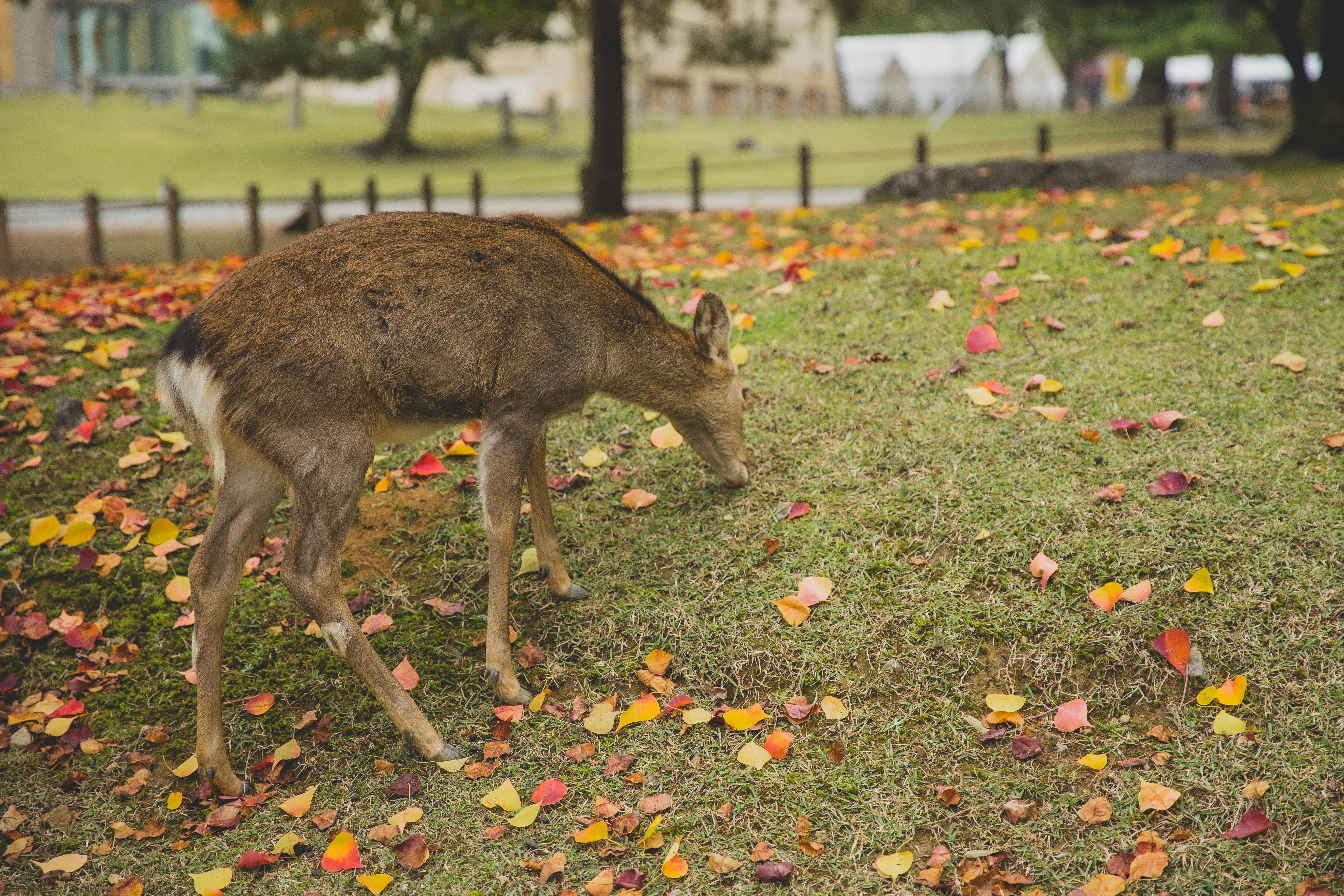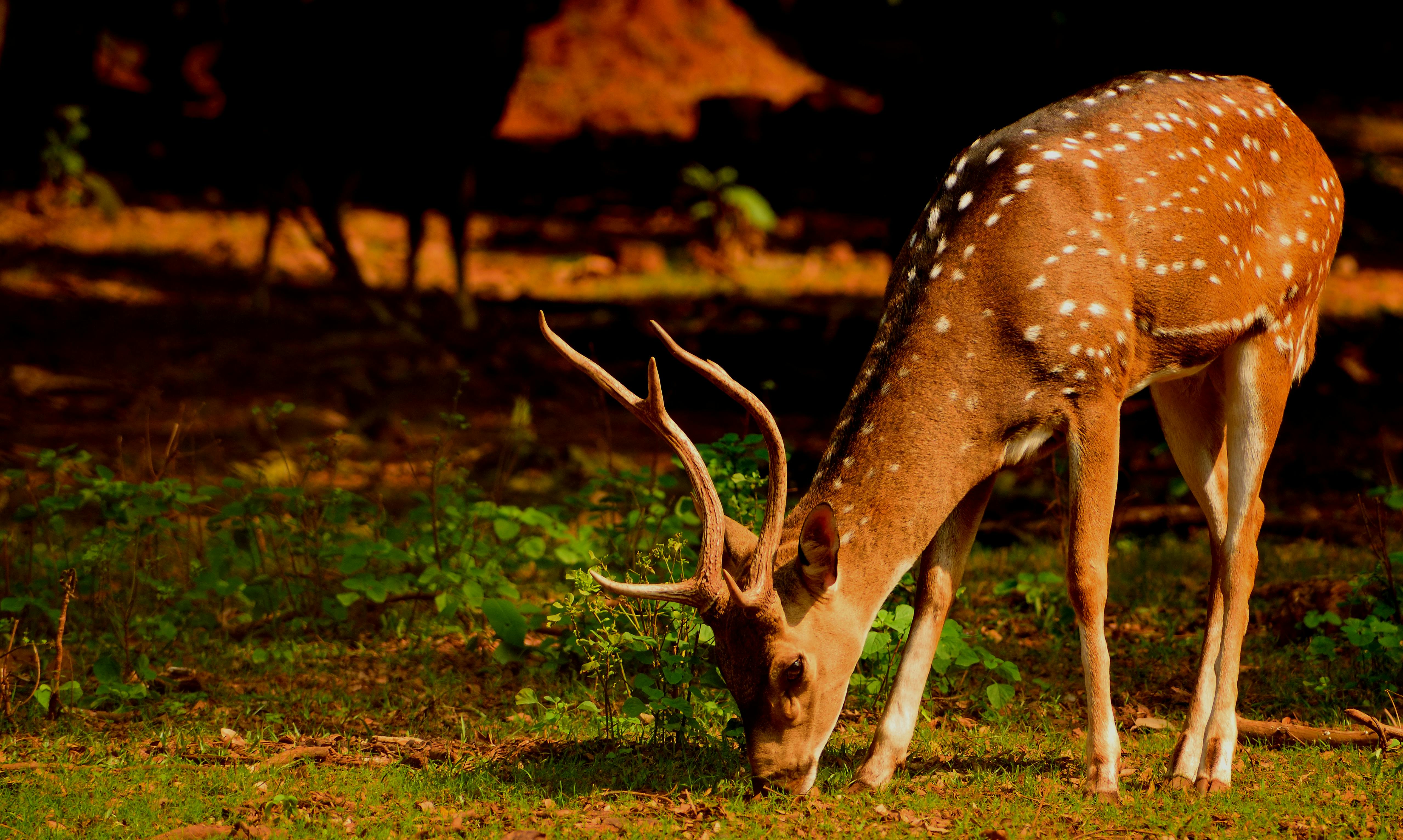Strawberries are a delicious and nutritious snack for humans, but can deer eat them too? This question is often asked by those who have seen deer in their gardens or who are interested in feeding wildlife. In this article, we will discuss whether or not deer can eat strawberries and the potential benefits and risks associated with it.Yes, deer can eat strawberries.
What Do Deer Eat?
Deer are herbivorous animals, meaning they consume mainly plants and vegetation. Deer diets can vary based on the type of deer and their habitat, but generally they enjoy a variety of grasses, leaves, buds, twigs, fruits, nuts, and bark. They also like to eat aquatic plants and browse on shrubs and trees when available. In many areas, deer have adapted to eating agricultural crops such as corn, alfalfa hay, oats and wheat.
In the wild, deer will forage for food in areas with thick vegetation that provides plenty of cover from predators. They typically feed in the early morning or late evening hours when it’s cooler and there is less risk of being seen by predators. During winter months when food is scarce, deer will feed on evergreen plants such as cedar or juniper which provide them with necessary nutrition even in cold weather.
Deer are also opportunistic feeders and have been known to eat birdseed or other food sources humans may leave out in their yards or gardens. While this may seem like an easy way for deer to find food it can be detrimental to their health as these foods are not part of their natural diet and can cause digestive problems if consumed in large quantities.
Types of Food Deer Prefer
Deer are herbivores, so they mainly feed on plants. The types of food that deer prefer depends on the season and the geographical location of the deer. In summer, deer will typically eat grasses, forbs (broad-leaved herbaceous plants), leaves, buds and fruits. Deer also love acorns, which are a great source of carbohydrates in the fall and winter months. As winter sets in and food becomes scarce, deer will turn to twigs, bark and evergreen needles for nourishment.
In addition to plant material, deer also consume fungi, lichens and other sources of nutrition when available. In some areas, deer may become accustomed to eating from human sources such as kitchen scraps or birdseed. Deer can also be attracted to gardens and agricultural crops such as corn or alfalfa.
Overall, it is important to remember that deer have a flexible diet that changes with the availability of different types of vegetation in each season. Therefore, it is important for people who live near deer populations to understand what types of food the animals prefer so they can protect their gardens or crops from damage by hungry animals.
Nutritional Benefits of Strawberries for Deer
Strawberries provide a variety of nutritional benefits for deer. They are a great source of essential vitamins and minerals, as well as fiber, protein, and antioxidants. Strawberries contain high amounts of vitamin C which is essential for the health and well-being of deer. Vitamin C helps to support their immune system, enabling them to fight off infections and diseases. Strawberries are also a good source of dietary fiber, which helps to keep the digestive system functioning properly. In addition, they are high in potassium which helps to regulate blood pressure, water balance, and nerve signaling in deer.
Strawberries also provide important phytonutrients such as phenolic compounds and flavonoids. These compounds act as powerful antioxidants that help protect cells from damage caused by free radicals. This can help reduce the risk of certain diseases such as cancer in deer. Additionally, strawberries are a good source of folate and other B vitamins. Folate plays an important role in cell growth and development, while B vitamins help with energy metabolism and brain health in deer.
Overall, strawberries provide a wide range of nutritional benefits for deer that can help to improve their overall health and wellbeing. They are an excellent source of essential vitamins and minerals that support the immune system, digestive system, cardiovascular system, and brain health in deer. Furthermore, they contain powerful antioxidants that can protect against certain diseases such as cancer. For these reasons, it is recommended that deer be given access to fresh strawberries whenever possible for optimal nutrition.
Can Strawberries Be Harmful to Deer?
Strawberries are a sweet and juicy berry that can be enjoyed by humans and animals alike. While there is no evidence that strawberries are outright harmful to deer, it’s important to note that deer do not naturally eat these berries in the wild. The over-consumption of strawberries or any other food can cause digestive upset in deer, leading to health problems. If a deer does consume too many strawberries, it may suffer from digestive issues including bloating, diarrhea, vomiting, and constipation. Additionally, if the strawberry plants are sprayed with pesticides or herbicides, they could be toxic to deer and other wildlife.
It’s also important to note that while some people may think feeding wild deer is helping them survive, it can actually be quite detrimental. By providing easy access to food sources such as strawberries, deer may become dependent on humans for their nutrition. This could lead to overpopulation and greatly reduce the number of natural food sources available for them in the wild.
Overall, while there is no evidence that suggests strawberries are harmful to deer in moderation, it’s important to remember that these animals don’t typically consume these berries in the wild. If you do decide to feed them strawberries or other fruits or vegetables from your garden, be sure they are pesticide-free and feed only in moderation.

What Are the Risks for Feeding Strawberries to Deer?
When it comes to feeding deer strawberries, there are a few risks that should be taken into account. The most obvious risk is the potential for attracting too many deer to the area where they are being fed, which can cause damage to the natural vegetation and disrupt the ecosystem. Additionally, feeding deer strawberries can cause an imbalance in their diet, which can lead to nutritional deficiencies and other health problems. Furthermore, feeding deer strawberries can also increase their exposure to predators, as they become more accustomed to humans and more likely to approach them. Lastly, when deer become accustomed to being fed strawberry treats, they may become overly aggressive and start attacking people or animals in search of food. All of these risks should be taken into account when deciding whether or not it is safe and appropriate to feed deer strawberries.
How to Feed Strawberries Safely to Deer
Strawberries can be a great treat for deer and make a delicious snack for them. However, it is important to feed the strawberries safely so that the deer don’t become ill or injured. When feeding strawberries to deer, it is important to remember that they can be quite delicate and need to be handled with care. Here are some tips on how to feed strawberries safely to deer:
1) Make sure that the strawberries are free of any pesticides or other chemicals. It is best to only use organic, locally-grown strawberries when feeding them to deer.
2) Cut the strawberries into smaller pieces so that the deer can easily eat them. This is especially important if you are feeding a large number of deer at once.
3) Avoid overfeeding the deer, as this can cause digestive problems and other health issues. It is best to only offer small amounts of food at a time and monitor how much they are eating.
4) Make sure that there is plenty of fresh drinking water available for the deer, as this will help prevent dehydration which can occur when eating large amounts of food such as fruits or vegetables.
5) Be sure to clean up any leftover strawberry pieces after feeding time is over, as this will help keep the area free from bacteria or other potential hazards.
By following these tips, you can ensure that you are feeding your local deer population safely and responsibly. Strawberries can make a tasty treat for deer and provide them with much needed nutrition during colder months when other food sources may be scarce.
Potential Problems When Feeding Strawberries to Deer
Feeding strawberries to deer can be a fun and rewarding experience, but there are potential problems that should be considered before doing so. These problems can range from the health of the deer to the impact on their natural feeding patterns.
One potential problem is that deer may become reliant on humans for food. If they are regularly fed strawberries, they may come to expect it and not feed on their natural sources of food. This could eventually lead to malnutrition or other health issues for the deer.
Another potential problem is that any foreign food source, including strawberries, could upset the balance of essential nutrients in a deer’s diet. If their diet is too heavily weighted toward one type of food, it could lead to an unhealthy diet and a weakened immune system.
In addition, feeding strawberries could attract unwanted wildlife such as bears or coyotes who may be looking for an easy meal. This could potentially put both humans and animals at risk of harm or injury.
Finally, it’s important to remember that deer have evolved over thousands of years to eat certain types of foods in order to survive in their natural environment. Feeding them something like strawberries could disrupt this evolution and have unintended consequences on their health and behavior.
For these reasons, it’s important to think carefully before feeding strawberries or any other type of human-sourced food to deer. While it may seem like a harmless act of kindness, it can actually do more harm than good if not done responsibly.




